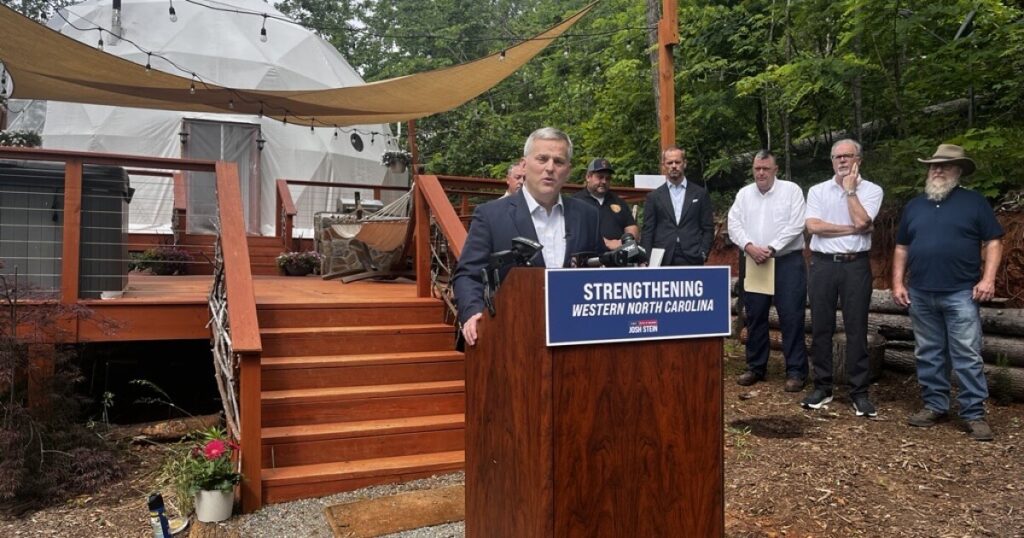Amid ongoing recovery efforts from the devastation of Hurricane Helene, Western North Carolina is in dire need of additional state funding, according to Governor Josh Stein. Speaking at a press briefing in Rutherfordton, Stein emphasized the urgency of securing $891 million more to aid the region’s recovery.
The press conference took place at Carolina Domes, where Stein was joined by North Carolina Commerce Secretary Lee Lilley. Highlighting the severity of the situation, Stein stated, “In the face of so many unmet needs and unanswered prayers, it is time for the state of North Carolina to be bold. We need to commit to the people of Western North Carolina that the state is with them over the long haul.”
Currently, the power to allocate the state’s budget lies with the General Assembly, and Stein is urging lawmakers to prioritize recovery investments to address critical issues without delay, especially given the uncertainty of federal aid. A proposal from the state senate put forward in April suggests directing $700 million over two years to Helene’s aftermath, following the legislature’s previous approval of a $524 million package.
Hurricane Helene has reportedly inflicted $60 billion in damages across North Carolina. In response, a law was enacted to allocate $524 million towards various recovery initiatives, though this figure falls significantly short of the $1.07 billion Stein initially requested.
Stein explained, “Of the funds that we have the ability to allocate, about 80% have been spent. That’s why I’m coming back to the General Assembly for this additional appropriations request. It’s the next phase.”
In his proposal, Stein suggests reallocating $45 million from previous unspent allocations, initially intended for underground storage tank repairs, election services, and school nutritional programs. The plan predominantly focuses on economic recovery, proposing $260 million for forgivable loans, workforce development, tourism, and local government support.
Additionally, Stein’s plan includes:
- $239 million for infrastructure needs such as debris removal, school repairs, climate resiliency, and technical support for local inspections and permits.
- $152 million in state matching funds to leverage federal disaster programs.
- $113 million aimed at housing recovery, including affordable housing projects, homelessness initiatives, and rental aid.
- $105 million for enhancing small and volunteer fire departments, waterway rehabilitation, and wildfire risk reduction.
- $23 million for family and student support, specifically targeting food banks and community college assistance amid declining enrollments.
During the conference, Stein briefly addressed the Federal Emergency Management Agency (FEMA), having recently signed a letter advocating for several reforms to expedite emergency funding, focusing on aiding local governments and property owners. Stein remarked, “This storm has shown that FEMA has sort of become a contraption — that it has been built on storm after storm after storm with different kinds of restrictions and requirements, making it very slow to respond.” He further added, “The talk about eliminating FEMA makes no sense. We want to improve FEMA, not eliminate it.”





